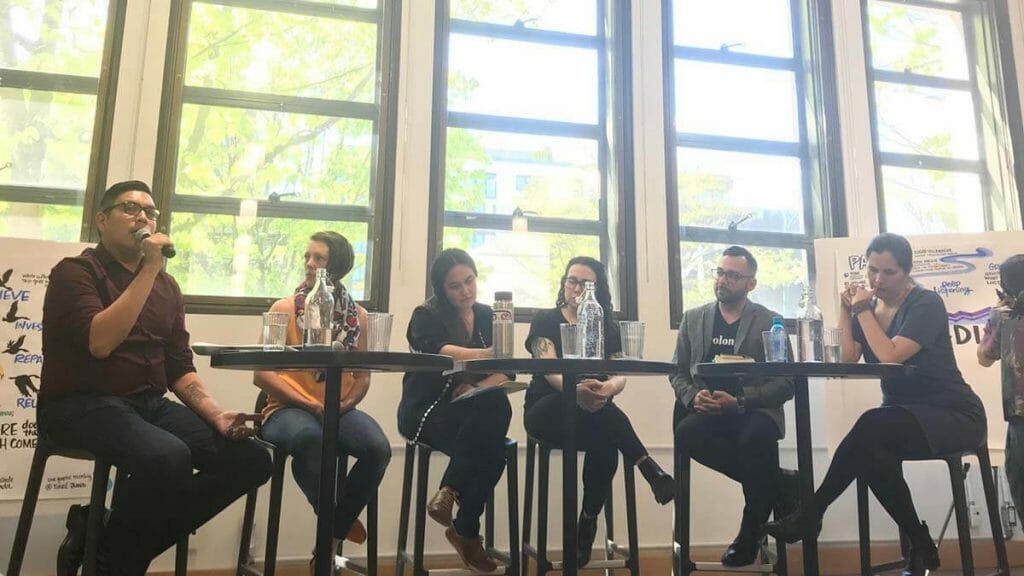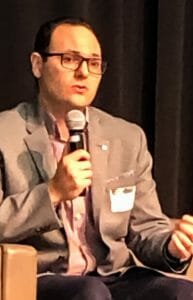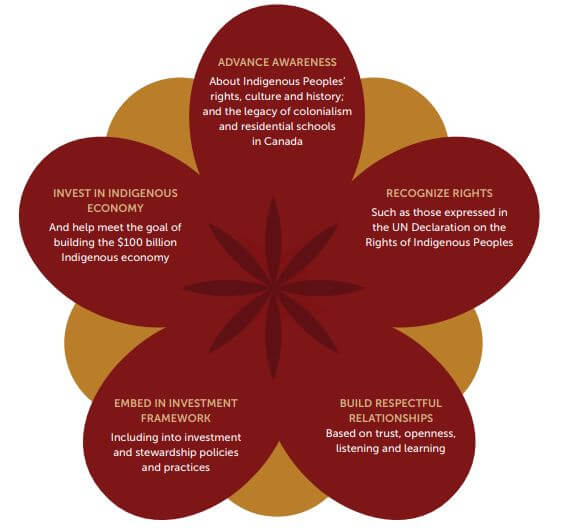Estimated Reading time

3 Mins
Advancing Reconciliation through Responsible Investment


Since the Truth and Reconciliation Commission (TRC) released its 94 Calls to Action in 2015, governments, businesses, and individuals are examining how they can improve and change their processes and assumptions to advance reconciliation with Indigenous Peoples in Canada.
In 2018, Coast Funds became a Member of The Circle on Philanthropy and Aboriginal Peoples in Canada, signing on to their Declaration of Action, pledging to maintain an active commitment to reconciliation. One of the commitments to reconciliation Coast Funds has made in recent years is to align our investment strategies with our values including respect for First Nations history, land use rights, and decision making authority.
One recent undertaking is to align our investment policies and guidelines with our values and the TRC’s calls to action. We recently underwent a proxy voting audit, with the help of the Shareholder Association for Research and Education (SHARE), that helped us develop our own proxy voting guidelines to include Indigenous Rights, climate change, and other environmental and social concerns.
Coast Funds’ executive director, Brodie Guy participated in a webinar on reconciliation through investment. Watch the webinar below to learn about how Coast Funds has incorporated reconciliation and other socially responsible investment practices into its investment guidelines:
Reconciliation through responsible investment has emerged as one of the many paths organizations can and should take. A recent guidebook, released by the Reconciliation & Responsible Investment Initiative (RRII), notes that “institutional investors in Canada are responsible for investing one of the largest pools of capital in the country,” and invest in all sectors of the economy.
Investors have a responsibility then to embed reconciliation and the rights of Indigenous Peoples into their investments. The guide lays out key steps for investors to follow including investing in the Indigenous economy; advancing awareness about Indigenous Rights, history, and culture; recognizing those rights; building respectful relationships; and embedding Indigenous Rights into investment policies and practices.

The guidebook was released shortly after a forum organized by SHARE and the National Aboriginal Trust Officers Association (NATOA) that focused on Reconciliation and the Indigenous Economy. The forum aimed to “establish a clear focus on the leadership needed to increase investments in the Indigenous economy.
Carole Anne Hilton, CEO of the Indigenomics Institute, wrote about the forum in the Corporate Knights Magazine:
“Building on the premise that Indigenous people have been systematically excluded from the economic table of this country over time, the forum generated thoughtful insights into the role of the investor in economic reconciliation today. It offered the space to connect with Indigenous leaders, businesses, philanthropists and asset managers to facilitate new opportunities for investment in the Indigenous economy.”
At Coast Funds, we are proud to be setting a new standard for philanthropy in Canada with the support of organizations like SHARE and The Circle. There are a growing number of organizations and resources dedicated to advancing reconciliation through responsible investment, a few of which are listed below:
- The Circle on Philanthropy and Aboriginal Peoples in Canada – dedicated to developing programs and spaces that cultivate better conversations, connections, and relationships among Aboriginal Peoples and philanthropic organizations. Learn about their free membership offer of Indigenous-led and informed charities in 2019.
- Shareholder Association for Research and Education – helping institutional investors to become active owners and develop and implement responsible investment policies and practices.
- Reconciliation & Responsible Investment Initiative – working with Canadian institutional investors to promote responsible investment policies and practices that include reconciliation goals.
- Foundation Investing 2.0 – a series of education programs to help Canadian foundations implement more and better impact and responsible investing strategies, across their endowment portfolios.
- Advancing Reconciliation in Canada: A Guide for Investors – a guidebook that outlines five tangible steps that institutional investors can take to make economic reconciliation an integrated part of their practice.
- Decolonizing Wealth – a book by Edgar Villanueva about decolonizing the philanthropic and finance sectors.
